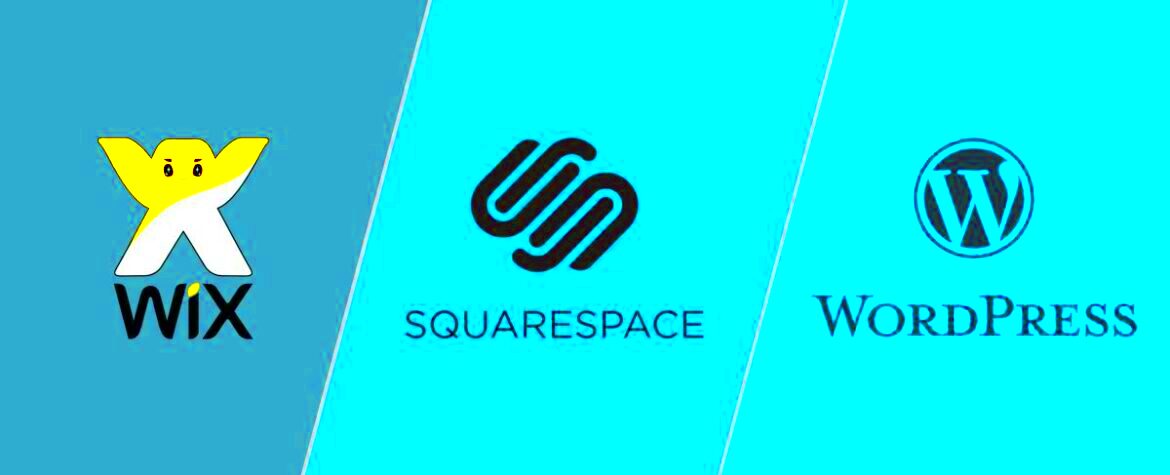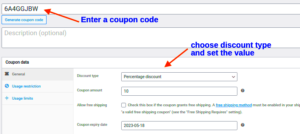If you’re stepping into the world of website creation, the options can feel overwhelming. With platforms like Wix, Squarespace, and WordPress leading the charge, how do you decide which is the best fit for your needs? Don’t sweat it! In this guide, we’re diving deep into each of these platforms, outlining their strengths and weaknesses, so you can confidently make your choice without feeling lost in the digital jungle.
Overview of Wix, Squarespace, and WordPress
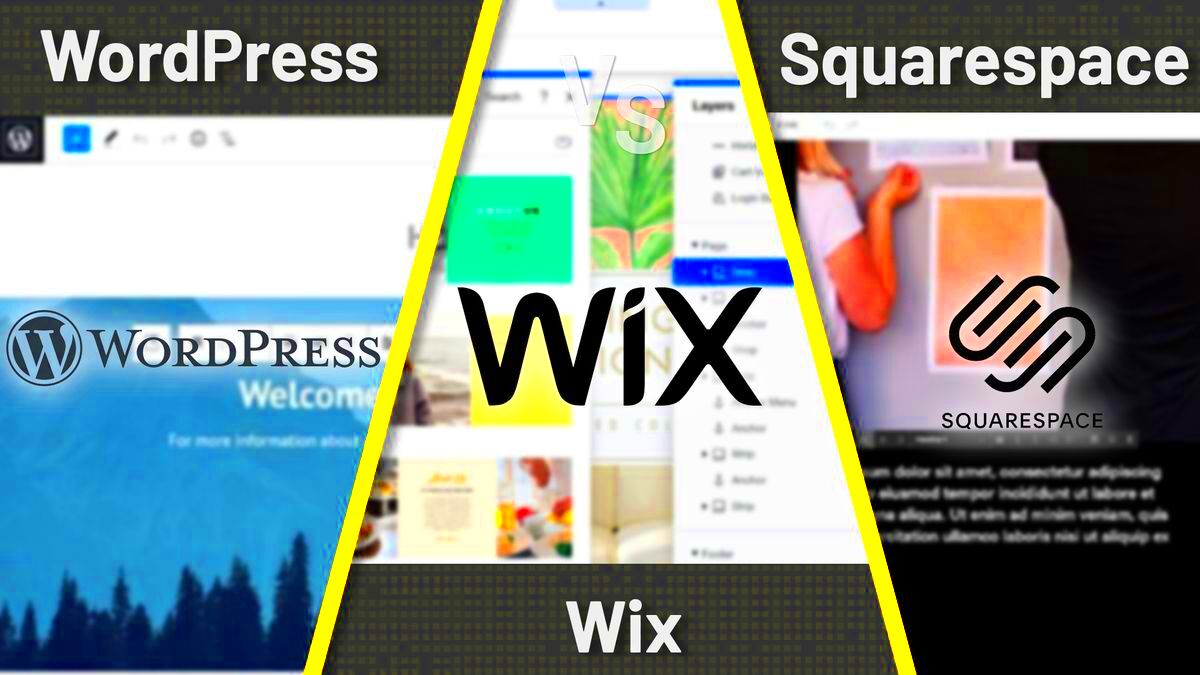
To choose the right platform for your website, it’s essential to understand the main features and benefits of each option. Let’s break it down:
Wix
- User-Friendly Drag-and-Drop Interface: Wix is celebrated for its intuitive design tools, making it simple for anyone to create a stunning website without needing coding skills.
- Variety of Templates: With hundreds of professionally designed templates, you can find something that fits almost any niche or business.
- App Market: Wix offers numerous apps to enhance your site’s functionality, from photo galleries to booking systems.
- Cost: Pricing plans cater to various budgets, making it accessible for startups and freelancers.
Squarespace
- Elegant and Modern Design: Squarespace is known for its sleek and sophisticated templates that cater to creatives, photographers, and professionals.
- All-in-One Solution: It includes hosting and domain registration, which means less hassle in managing services.
- Responsive Design: All templates are mobile-friendly, meaning your site will look great on any device.
- Built-in SEO Tools: Squarespace provides useful SEO options, helping your site gain visibility on search engines.
WordPress
- Flexibility and Customization: WordPress is incredibly versatile, with countless themes and plugins to build a site that’s exactly what you envision.
- Scalability: Whether you’re launching a blog or a large-scale online store, WordPress can grow with you.
- Strong Community Support: With millions of users and developers, there’s plenty of resources and support available.
- Cost: While WordPress itself is free, you may incur costs for hosting, themes, and plugins.
Now that you’ve got a clearer picture of each platform’s unique offerings, let’s dive deeper into how they can meet your specific needs!
3. Ease of Use
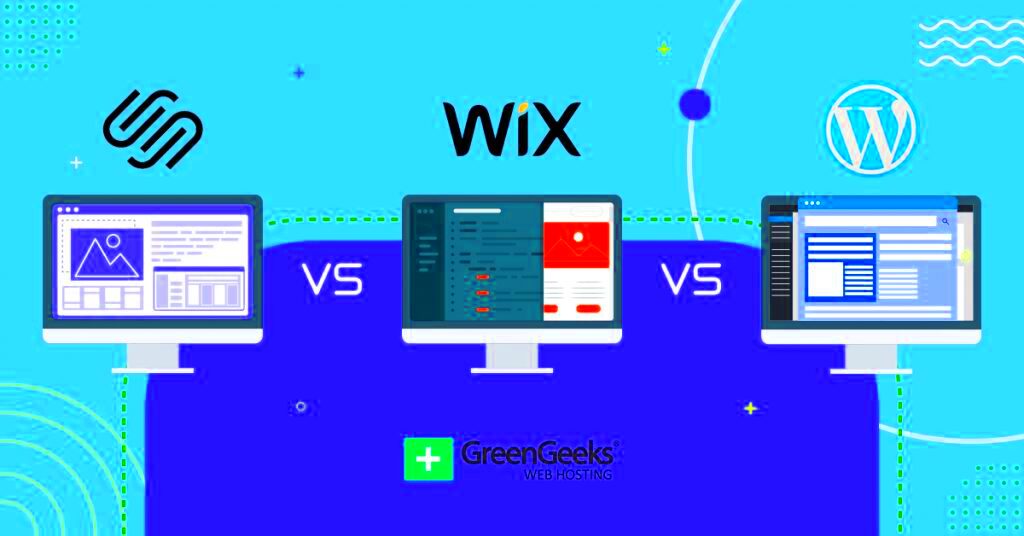
When it comes to building a website, ease of use can be a game-changer. Let’s face it, not everyone is a tech wizard, and sometimes the thought of diving into web design can feel overwhelming. So, how do Wix, Squarespace, and WordPress stack up in this department?
Wix
Wix is like the friendly neighbor who’s always there to lend a hand. Its drag-and-drop interface allows you to easily add elements like text boxes, images, and videos without needing any coding skills. If you can click and drag, you can create a stunning website! Plus, Wix offers a wide array of templates that are ready to go, making it even easier to get started. You can customize these templates as much or as little as you want, which gives you the freedom to express your brand.
Squarespace
Squarespace is sleek and intuitive. The platform provides a streamlined experience, making it easy for users to navigate through various elements. Its built-in guides and tutorials help walk you through the setup process, making it beginner-friendly. While it might not be as flexible as Wix in terms of dragging elements around, Squarespace offers beautifully crafted templates that are well-organized and responsive, which means they look great on various devices.
WordPress
WordPress is a bit like a treasure chest; it holds incredible potential, but you might need a map to find it! While the WordPress dashboard may feel slightly daunting at first, especially for newbies, the extensive documentation and community support can help you find your way. Once you get comfortable, the world of plugins and themes opens up limitless customization options.
4. Design and Customization Options
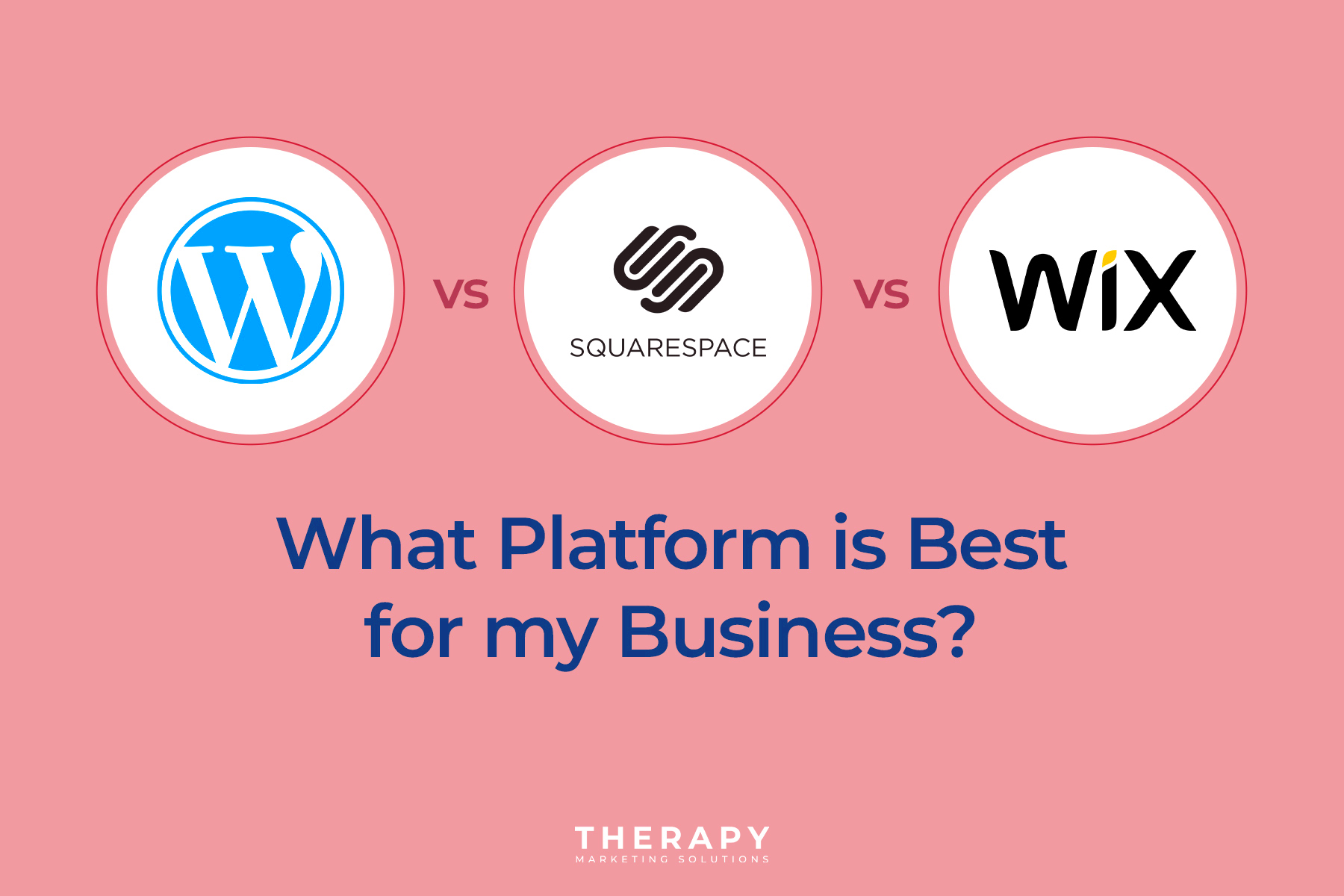
Design and customization options are vital for creating a website that’s not just functional but also visually appealing. Let’s explore how each platform measures up in this critical area!
Wix
Wix is known for its vast library of customizable templates—more than 800 to choose from! Whether you’re creating a portfolio, an online store, or a blog, you’re bound to find a design that matches your vision. Features like the Wix ADI (Artificial Design Intelligence) can help create a tailor-made site based on your answers to a few questions. Plus, their App Market allows you to add functionalities like galleries, chat support, and more with just a few clicks!
Squarespace
Squarespace excels in the design department, offering visually striking templates that are loved by creative professionals. Their designs are crafted with style in mind, emphasizing high-quality images and typography. While customization options are somewhat limited when compared to Wix, the templates are responsive and look great on all devices. You can tweak colors, fonts, and layouts, but sometimes you might feel constrained. However, the quality of designs often makes it worth it!
WordPress
With WordPress, the sky’s the limit! It offers thousands of themes, both free and premium, that can be fully customized. You can use page builders like Elementor or Beaver Builder for a drag-and-drop experience similar to Wix. Plus, plugins allow endless customization possibilities—whether you want to add sliders, forums, or multiple gallery styles. Just remember, with great power comes great responsibility; too many customization options can lead to decision fatigue!
In conclusion, whether you value user-friendliness or design flexibility, understanding the ease of use and where to land on customization options can help you select the best platform tailored to your needs.
5. Pricing Plans
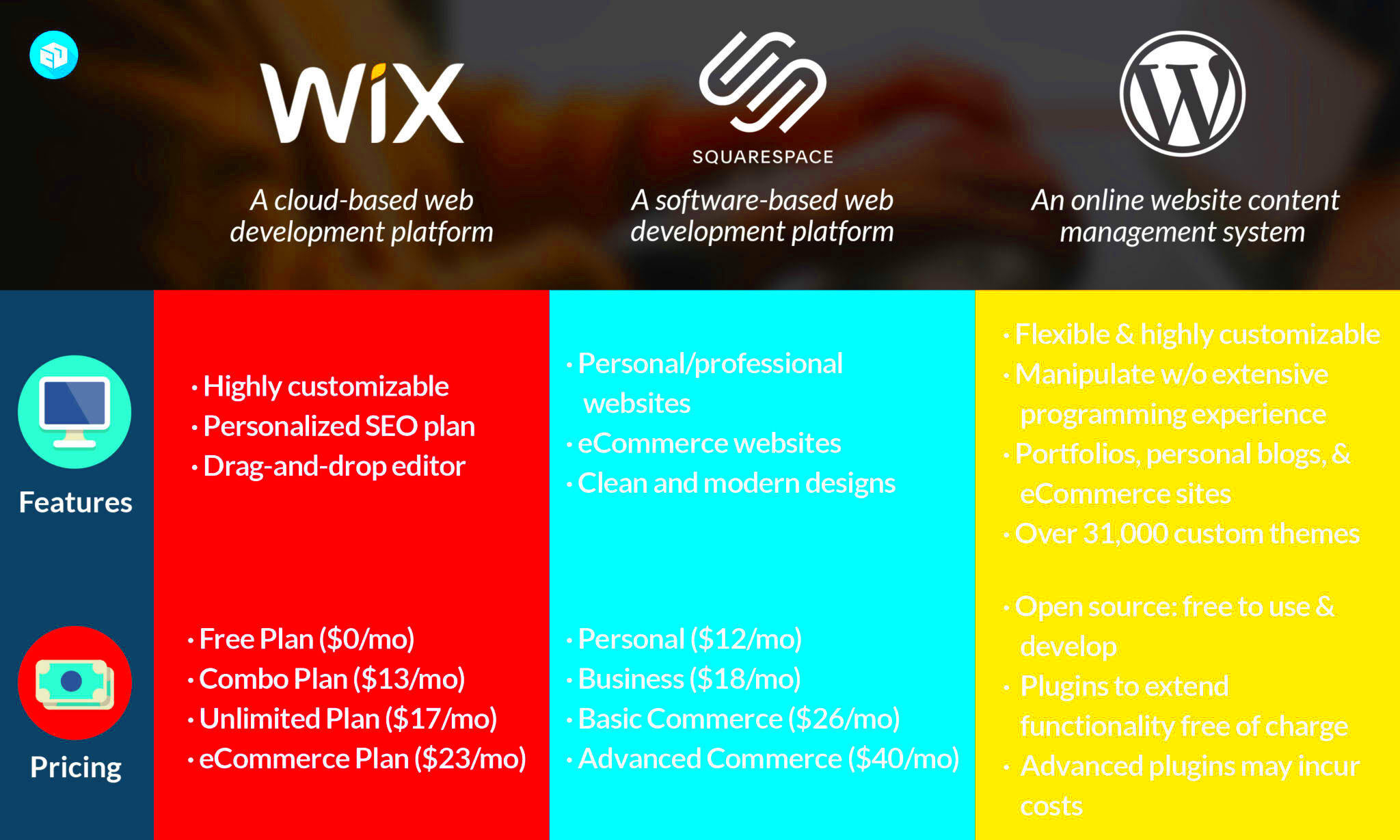
When it comes to choosing a website building platform, pricing can make or break your decision. Each of the three major players—Wix, Squarespace, and WordPress—offers a variety of pricing plans tailored to different needs. Let’s dive into the details:
Wix Pricing Plans
Wix features several pricing options, ranging from free plans to premium packages. The free plan is a great way to get started, but it comes with limitations like Wix ads and fewer storage options. Here’s a brief breakdown of Wix’s popular plans:
- Connect Domain: $5/month – Includes custom domain connection but only basic features.
- Combo: $14/month – Ideal for personal use, ad-free experience with 3GB storage.
- Unlimited: $18/month – Great for entrepreneurs, offering unlimited bandwidth and 10GB storage.
- VIP: $39/month – Full features, priority support, and 20GB storage.
Squarespace Pricing Plans
Squarespace provides a more streamlined set of plans, all offering unlimited bandwidth and SSL security. Their pricing tiers are:
- Personal: $16/month – Basic features suitable for a personal website.
- Business: $23/month – Includes e-commerce features and promotional pop-ups.
- Basic Commerce: $27/month – E-commerce ready with no transaction fees.
- Advanced Commerce: $49/month – Full e-commerce capabilities with advanced shipping options.
WordPress Pricing Plans
WordPress.org is free but requires hosting services, which can vary significantly in cost. On the other hand, WordPress.com offers several tiers:
- Free: Limited features, but a good starting point.
- Personal: $4/month – Ad-free experience with basic customization.
- Premium: $8/month – Ideal for freelancers and bloggers with more advanced features.
- Business: $25/month – Full customization with plugins and third-party themes.
- eCommerce: $45/month – A comprehensive solution for online stores.
Each platform’s pricing varies based on features you need. It’s important to think about your specific requirements and budget before making a decision.
6. SEO Features
Search Engine Optimization (SEO) is a crucial factor when building a website, as it determines how easily your site can be found on search engines like Google. Wix, Squarespace, and WordPress all offer different capabilities that cater to various needs.
Wix SEO Features
Wix has made significant strides in recent years with its SEO tools. Here are some key features:
- SEO Wizard: Guides you through optimizing your site.
- Custom URL: Ability to customize URL structures for better SEO.
- Mobile Optimization: Automatic mobile-friendly designs.
- Structured Data: Helps search engines understand your content better.
Nonetheless, some users do feel that Wix may not be as powerful as WordPress when it comes to SEO versatility.
Squarespace SEO Features
Squarespace also offers solid SEO integrations, including:
- Automatic Sitemap Generation: Helps with site indexing.
- SSL Security: Secures your site, enhancing trustworthiness in search engines.
- Customizable Title Tags and Meta Descriptions: Essential for telling search engines what your pages are about.
The downside? Some users may find that Squarespace’s rigid templates can limit deep SEO customization.
WordPress SEO Features
WordPress is often praised for its exceptional SEO capabilities, largely due to plugins like Yoast SEO. Here are some standout features:
- Comprehensive Blogging Tools: Built-in functionalities that enhance content visibility.
- Custom Permalink Structures: This option allows tailored URLs to boost SEO.
- Granular Control: Meta tags, titles, and descriptions can all be managed independently.
Overall, if SEO is a top priority for you, WordPress emerges as a robust choice, offering unparalleled features and flexibility.
Support and Community
When it comes to choosing the right website building platform, one of the most critical factors to consider is the level of support and community available. After all, no one wants to venture into creating a website alone, especially when problems arise or questions pop up. Let’s break down the support and community aspects for Wix, Squarespace, and WordPress.
Wix offers a comprehensive support system that includes a detailed help center, video tutorials, and a user forum. They have a dedicated customer service team available via phone and email. However, response times can vary, and you might find some inquiries take longer than expected to resolve. The community aspect is bolstered by an extensive collection of Wix users who share tips, tricks, and resources.
Squarespace excels in providing stylish and well-organized support resources. They offer live chat and email support, along with a vast library of tutorials and guides. The Squarespace community is known for its design-savvy users, which can be a valuable asset if you’re looking for creative ideas. However, they don’t have a traditional forum, so you may turn to social media or third-party avenues for broader community interaction.
WordPress stands out because it has a massive and diverse community, thanks to its open-source nature. You’ll find an abundance of forums, blogs, clubs, and meetups dedicated solely to WordPress. Support can be a mixed bag—self-hosted WordPress users often rely on community forums, while those using WordPress.com can access support directly. The challenge lies in the sheer volume of information, which can be overwhelming for newcomers.
In summary, if direct customer support is a priority, Wix and Squarespace may be more appealing options. However, if you value a diverse and resourceful community, WordPress is hard to beat.
Best Use Cases for Each Platform
Each platform has its strengths, which cater to different user needs and skill levels. Understanding the best use cases for Wix, Squarespace, and WordPress can help you make an informed decision based on your goals and preferences.
| Platform | Best Use Cases |
|---|---|
| Wix |
|
| Squarespace |
|
| WordPress |
|
In summary, your choice of platform should align with your specific needs. If you’re a beginner looking for a straightforward solution, Wix might be your best bet. If design is paramount, Squarespace should be your go-to. Meanwhile, if you’re prepared to take your time and have more control, WordPress is the way to go. Consider what you value most to find the perfect fit!
Conclusion: Which Platform is Right for You?
Choosing the right website building platform can be a daunting task, especially when considering the unique features, designs, and functionalities of Wix, Squarespace, and WordPress. Each platform has its strengths and weaknesses, making it essential to evaluate your specific needs and preferences before making a decision.
Here’s a quick overview of the three platforms:
| Feature | Wix | Squarespace | WordPress |
|---|---|---|---|
| Ease of Use | Highly user-friendly with drag-and-drop capabilities. | Sleek interface, but with a slightly steeper learning curve. | Requires some technical knowledge for setup; best for those comfortable with technology. |
| Customization | Offers a wide range of templates and customization options. | Beautiful and modern templates; less flexible than Wix. | Highly customizable with thousands of themes and plugins. |
| SEO Capabilities | Decent, but limited compared to WordPress. | Good SEO features but with some restrictions. | Excellent SEO capabilities with various plugins available. |
| Pricing | Flexible pricing options for small to medium websites. | Higher price point but includes hosting and features. | Free option available; costs can grow with plugins and hosting needs. |
Ultimately, your choice depends on your website goals, technical proficiency, and budget. If you prioritize ease of use and quick setup, Wix may be your ideal choice. If you seek beautiful designs with solid functionality, consider Squarespace. For those who need deep customization and scalability, WordPress remains unbeatable. Take time to evaluate each option’s unique offerings to find the platform that suits your needs best.

